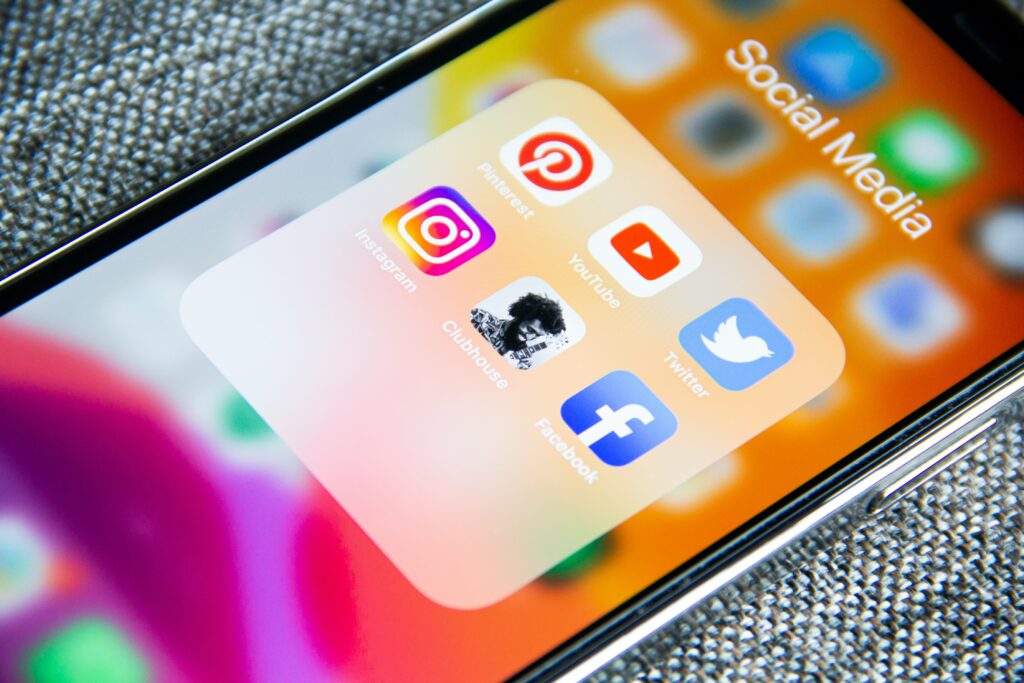I’m always surprised by the texts my clients bring me to read. It’s amazing what people will write in a text message. Inevitably, anytime a divorce becomes contested, text messages provide critical evidence for the divorce case.
In general, text messages can be used as evidence in a divorce case. Text messages, like any other form of written communication, can provide valuable information to a court regarding the actions and intentions of the individuals involved.
In this article, we will examine the role of text messages in divorce proceedings and provide a guide on how they can be used legally and ethically as evidence.

Are Text Messages Admissible in Court?
The admissibility of text messages as evidence in a divorce case will depend on the specific circumstances of the case and the rules of evidence that apply in your state.
In general, text messages are admissible in court as long as they are relevant to the case and are not protected by privilege.
How to Obtain Messages as Evidence in a Divorce Case
You can take several steps to obtain text messages as evidence in a divorce case. These include:
Take Screen Shots: If you have physical access to the phone or tablet, you can take screenshots of the text messages and use them as evidence. Screenshots are admissible as evidence in court.
Subpoena the Text From the Service Provider: If you or your spouse have a smartphone, you can request text messages from the service provider, such as AT&T, Verizon, or Sprint. You will need to provide a court order or subpoena to the service provider, who will then be required to turn over the requested text messages. If an attorney represents you, they should be able to access the records.
Request from the other spouse as discovery: You can also request that the other spouse provide copies of any relevant text messages as part of the discovery process in the divorce case. This can be done through a formal request to produce documents or a subpoena.
Backup files: If you have a backup of your phone data, including text messages, you can use this to retrieve text messages for use in the divorce case.

How to Get Text Messages into Evidence at Divorce Court
Since text messages are hearsay, you will need to prove the text messages are statements of your spouse and offer the judge a valid reason for the text messages to come into evidence. To this, you will need to do the following:
Authenticate the text messages.
You must establish that the text messages are genuine and have not been altered or fabricated. You can do this with your testimony if you received text messages from your spouse.
If you cannot independently authenticate the text messages, you may need to obtain a certificate of authenticity from a forensic expert, providing a sworn statement that the messages are true and accurate.
Determine if the text messages are relevant to the case
You will need to show the judge that the information in the text messages is relevant to the case. The following is a list of evidence in text messages that will generally be considered relevant to the case and be admitted into evidence:
- Messages related to the division of assets or debts, such as messages discussing the transfer of property or joint bank accounts.
- Messages that demonstrate a pattern of behavior, such as messages indicating a history of substance abuse or infidelity.
- Messages that show intent, such as messages discussing plans to hide assets.
- Messages that demonstrate a lack of cooperation, such as a refusal to comply with court orders or agreement terms.
Ethical Considerations when Using Text Messages as Evidence
When using text messages as evidence in a divorce case, it is crucial to consider the ethical implications of your actions. If a judge concludes that you have obtained the text messages unethically, they will not be admissible in evidence.
“As a word of caution, I have had several clients arrested and charged with felonies for improperly recording phone conversations and hacking email and text messages.”
Attorney Tim McDuffey
There are several unethical uses of text messages in a divorce case, including:
Hacking or illegally intercepting text messages: Obtaining text messages through unauthorized means, such as hacking into someone’s phone or intercepting text messages without their consent, is illegal and unethical.
Fabricating or altering text messages: Creating or modifying text messages to present false evidence in a divorce case is unethical and can result in criminal charges for perjury or fraud.
Misrepresenting the context or content of text messages: Presenting text messages in a way that misrepresents the context or content of the messages is unethical and can result in charges of misleading the court.
Using text messages obtained through coercion or duress: Using text messages that were obtained through coercion, such as threatening or blackmailing the sender, is unethical and can result in charges of witness tampering or intimidation.
Using unethical means to obtain or present text messages in a divorce case can have legal and ethical consequences. It’s important to get evidence legally and ethically and to consult with a lawyer for specific guidance on the admissibility of evidence in a divorce case.

Can You Recover Deleted Text Messages?
Recovering deleted text messages can sometimes be possible, but it’s not always guaranteed. Here are a few methods that our law firm has used to recover deleted text messages:
1. Use a data recovery tool.
Several websites offer data recovery services for smartphones. Some popular options include:
- Dr. Fone (https://drfone.wondershare.com)
- Recuva (https://www.piriform.com/recuva)
- EaseUS MobiSaver (https://www.easeus.com/mobile-phone-recovery/)
- Disk Drill (https://www.cleverfiles.com/phone-recovery.html)
- MiniTool Mobile Recovery (https://www.minitool.com/mobile-recovery/)
2. Restore from a backup.
If you have a backup of your phone data, including text messages, you can restore your phone from the backup to recover deleted text messages.

Recovering Data from an iPhone
To recover backed-up data on an iPhone, you can use iTunes or iCloud, depending on which backup method you use. Here’s how to do it:
Using iTunes:
- Connect your iPhone to the computer you used to back up your data.
- Launch iTunes and click on the device icon.
- Click “Restore Backup…”
- Select the backup that you want to restore and click “Restore.”
- Wait for the restore process to complete.
Using iCloud:
- Go to “Settings” on your iPhone.
- Tap on your name at the top of the screen.
- Tap “iCloud.”
- Tap “iCloud Backup.”
- Tap “Restore Backup.”
- Select the backup you want to restore and wait for the process to complete.
Please note that restoring from a backup will overwrite the current data on your iPhone with the data from the backup. Make sure you have a recent backup and understand the implications of restoring your data before proceeding.

Recovering data from an Android
To recover backed-up data on an Android device, you can use the built-in backup feature on your device, Google Drive, or third-party data recovery software. Here’s how to do it:
Using built-in backup:
- Go to “Settings” on your Android device.
- Tap “System.”
- Tap “Backup.”
- Check if your device is set up to automatically back up to Google Drive.
- If so, follow the on-screen instructions to restore the backup.
Using Google Drive:
- Go to “Settings” on your Android device.
- Tap “Google.”
- Tap “Backup.”
- Make sure that “Back up to Google Drive” is turned on.
- Follow the on-screen instructions to restore the backup.
Using third-party software:
- Download and install data recovery software for Android, such as EaseUS MobiSaver for Android (https://www.easeus.com/android-data-recovery/).
- Connect your Android device to your computer.
- Launch the software and select the type of files you want to recover.
- Scan your device for recoverable data.
- Preview and select the data you want to recover.
- Click “Recover” to retrieve the data.

FAQ
The most frequent question I receive as a lawyer as it relates to text messages is:
Can Text Messages Be Used To Prove Adultery?
Yes, text messages can be used as evidence in divorce court, including in cases involving allegations of adultery. In my experience, text messages are extremely effective in proving adultery.

